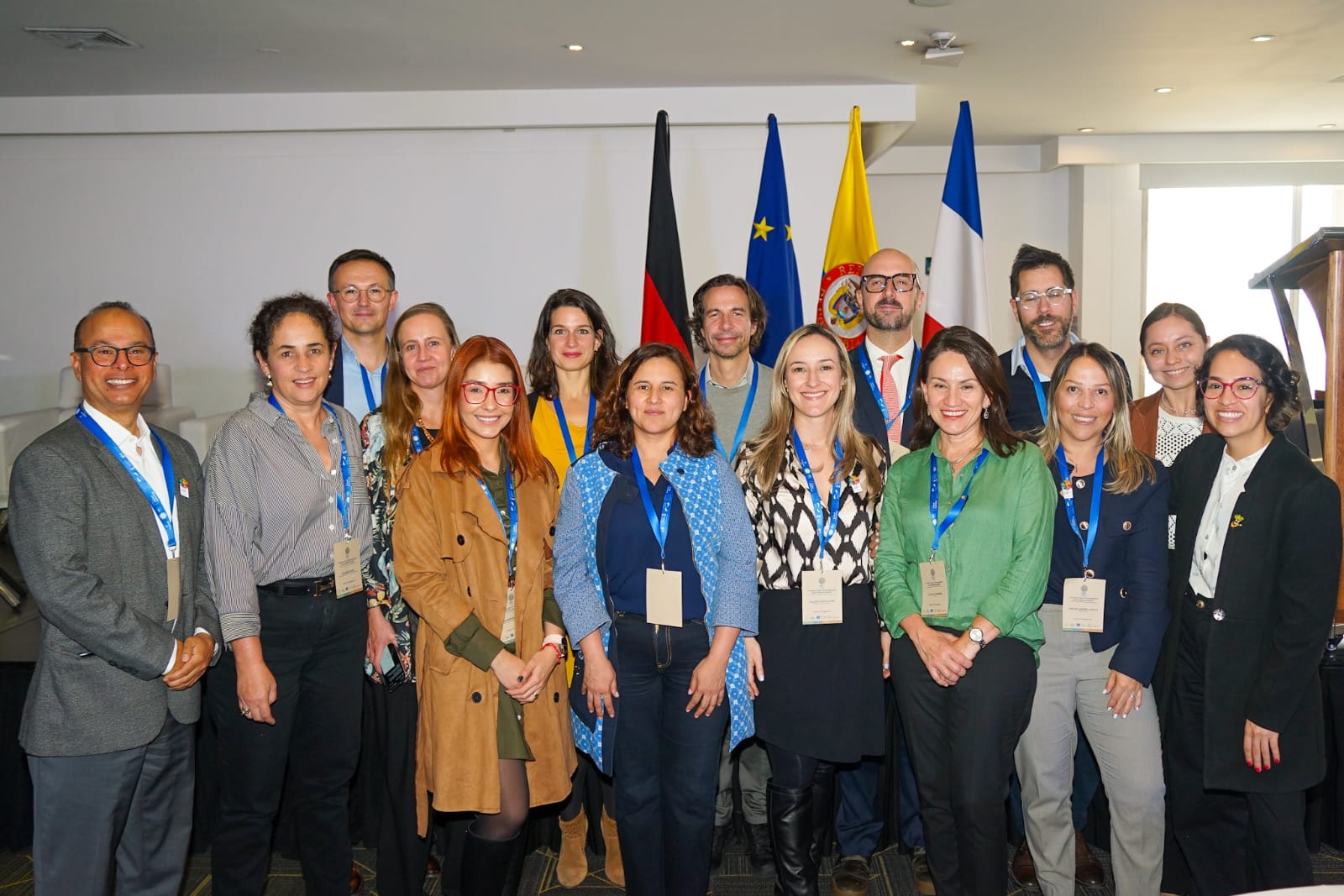Summit on financing biodiversity: towards COP16
The event, organized by the Colombian Ministry of the Environment and Sustainable Development, with support from the European Union through its Euroclima program and funding from the German Federal Ministry for Economic Cooperation and Development (BMZ), in collaboration with GIZ, identified challenges and opportunities for closing the biodiversity financing gap and increasing and aligning capital flows with the commitments of the Kunming-Montreal Global Biodiversity Framework.
Environment and Sustainable Development Minister Susana Muhamad opened the summit, which brought together Latin American leaders and experts in the field. In her speech, she stressed the importance of reviewing our countries' development models so that they put nature first: "we must have economies that do not destroy it, but on the contrary conserve and reproduce it in a vital way, and look for ways to finance this transition".
"This preparatory meeting is crucial to tackle this fundamental problem from the point of view of a country like Colombia. We have proposals for this transition on the table, but they require a change in the financial status quo, which is not happening at the pace needed for multilateral banks, financial institutions, central banks or finance ministries, as well as for private companies, institutions and organizations that are still waiting for bankable projects, i.e. with a return on investment", said the Minister.
During the agenda, success stories and key strategies from players in the public, private and international cooperation sectors were presented, generating valuable recommendations for decision-makers in the run-up to COP16.
The EU's commitment to biodiversity in Latin America
For Murielle Gurtner, Expertise France's representative for the Andean region, this event provided an opportunity to delve deeper into the key dimensions of meeting the challenges of financing biodiversity conservation, such as mobilization and synergy between sectors, and the promotion of concrete solutions with a transformative effect for nature and positive impacts for local populations, aligned with the fight against climate change and desertification, in a spirit of social justice.
Among the main topics discussed were: the global scenario for financial flows in favor of biodiversity and the urgent need to mobilize resources, the alignment of financial flows with climate action and biodiversity in the Latin America and Caribbean region, and best practices in the financial sector for creating green products and mitigating environmental risks.
"It's essential to listen to the experts who have joined us today to understand what's happening in sustainable finance and what opportunities are available. In Colombia, there is a key aspect related to terminology and definitions, particularly when we talk about concepts such as green taxonomy. In this sense, we have tools that can help manage risks in an acceptable way, which is essential for attracting responsible and sustainable investments", concluded Alberto Menghini, Head of Cooperation at the European Union Delegation in Colombia.

The challenge of financing biodiversity
Sessions included workshops, panels and plenary sessions, during which crucial issues such as updating Colombia's national biodiversity financing plan, creating financial taxonomies and developing positive incentives for nature conservation in Latin America were discussed.
At the end of the day, the results highlighted the identification of innovative financial instruments to bridge the biodiversity financing gap, the importance of pooling efforts and concrete proposals to strengthen public-private cooperation and ensure the effective distribution of benefits at territorial level.
The meeting marked an important milestone in the preparations for COP16, to be held in Cali in 2024, consolidating the commitment of the region's countries to combating climate change and biodiversity loss.

